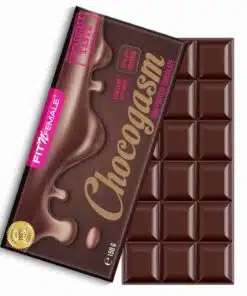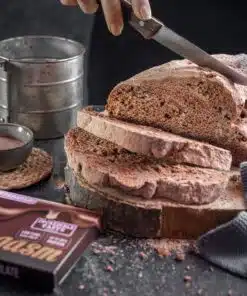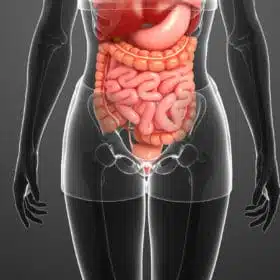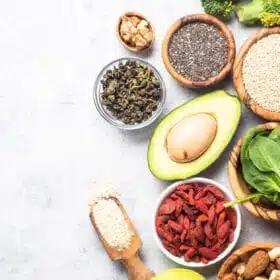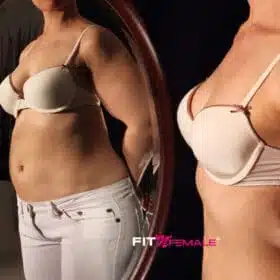Anyone who has ever Diet knows that there are foods that can jeopardize the success of a diet. On the one hand, this applies to classic dietary traps, but on the other hand also to less conspicuous foods that only become quantitatively significant over longer periods of time. To help you avoid some of these traps, we have listed 15 foods in this article that you should definitely avoid when dieting.
1 - Chips
Since snacking is part of human nature and seems to have been anchored in our DNA since time immemorial, it is no wonder that potato potato chips are one of the foods that can easily ruin our dietary efforts. What is particularly problematic in this context is the combination of carbohydrates and large quantities of not necessarily first-class fats, which are capable of easily destroying any calorie balance. In addition, it is difficult to limit our consumption of potato potato chips, which are usually highly salted, so we usually eat far more of them than is good for us and our plans.
2 - Coffee cream
Even if you might think that coffee cream is one of those foods that doesn't really matter on balance, as it is only used in small quantities, you should avoid it as part of a diet. Especially if you drink a lot of coffee, the calories in coffee cream quickly add up, so you can quickly end up with a few unnecessary extra calories a day. To avoid drinking your coffee black, you can opt for healthier alternatives such as almond milk or reduced-fat cow's milk with 1.5 percent or 0.3 percent fat.
3 - Packaged cookies
Even a small portion of cookies can have a decisive impact on your daily calorie balance, as these seemingly small amounts can already contain significantly more than 100 kilocalories. In addition, the recommendations of renowned institutes and health authorities state that no more than 40 grams of industrial sugar should be consumed per day. The bite-sized portions from the sweets shelf are also in the red zone with regard to this fact, as 50 grams often cover more than a quarter of the daily amount.
4 - Energy drinks
Although energy drinks are marketed by the beverage industry as healthy and essential for success, this does not mean that this is true. Rather, you should know that despite the vitamins and undoubtedly stimulating caffeine they contain, these fashionable drinks are not essential for you and your body. As a rule, they also contain a comparatively high proportion of sugar, which means they should be strictly avoided, especially if you are on a diet. Alternatively, you can opt for calorie-free mineral waters in different flavors.
5 - Frozen yogurt
If you have managed to replace ice cream with frozen yogurt as part of your diet plan, this is already a significant step in the right direction, as you are saving a lot of fat. Nevertheless, you should also avoid snacks such as frozen yogurt, because it cannot be denied that the missing fat is at least partially substituted by an increased sugar content.
6 - Muesli bar
The advertising industry never tires of portraying muesli bars as particularly good, but in most cases this is not the case. This is due to the fact that many products contain large amounts of granulated sugar and hydrogenated fats. Instead of pre-packed bars, you should opt for fresh fruit. However, if you don't want to give up muesli bars, you can easily make your own with oat flakes, nuts and dried fruit.
7 - Tomato ketchup
What may surprise many fans of ketchup is the fact that the main ingredient in red sauce is not tomato, as the name suggests, but sugar. In practice, even a tiny portion in the order of a teaspoon contains no less than 4 grams of granulated sugar. As very few people leave it at such a small amount, the calories quickly add up to a significant amount.
8 - Margarine
Margarine contains unhealthy trans fatty acids, which not only have a negative effect on your cholesterol levels, but can also have a negative impact on your heart health. This results in the well-intentioned advice to banish the plant-based spread from the fridge and replace it with a low-calorie cream cheese, for example.
9 - Pancakes
Of course, pancakes are one of the dishes that can significantly boost your morale as part of a diet. However, you should never use ready-made mixes in this context, as these consist mainly of refined white flour as well as sugar. Alternatively, you should be proactive and make the dough yourself using protein powder, egg white, stevia and spices of your choice.
10 - Popcorn from the microwave
If you absolutely want to eat popcorn, you should make sure that you strictly avoid pre-packaged microwave popcorn, as this usually contains a lot of fat and sugar. You are on the safe side if you buy untreated popcorn and prepare it yourself.
11 - Soft drinks
If you treat yourself to a soft drink or a cola from time to time, this is not necessarily counterproductive, even as part of a diet. However, if you regularly reach for sugared soft drinks, they are likely to torpedo your success. If in doubt, it is therefore better to avoid them altogether or to opt for calorie-free variants.
12 - Sweetened breakfast cereals
Of course, chocolate flakes or cinnamon flakes taste much better than the comparatively boring oatmeal. In terms of nutritional value, however, you should avoid sweetened breakfast cereals, as they often contain as much sugar per portion as a chocolate bar. The best option here is to mix your own muesli from rolled oats, nuts and dried fruit.
13 - Artificial sweeteners
According to scientific studies, many artificial sweeteners are suspected of having an appetite-promoting effect and, in the worst case, causing food cravings. Even if the final proof is still pending, you should not take any risks by avoiding such sweeteners and replacing them with natural alternatives such as stevia.
14 - Vegetable oil
Classic vegetable oil is basically nothing more than concentrated industrial fat, which is used in many finished products. Alternatively, there are healthy alternatives such as olive oil or linseed oil.
15 - White bread
As white bread has no benefit for your body apart from its pure calorific value, it has no place in your diet at all. Instead, opt for wholemeal bread, which not only tastes better but is also rich in valuable micronutrients.

